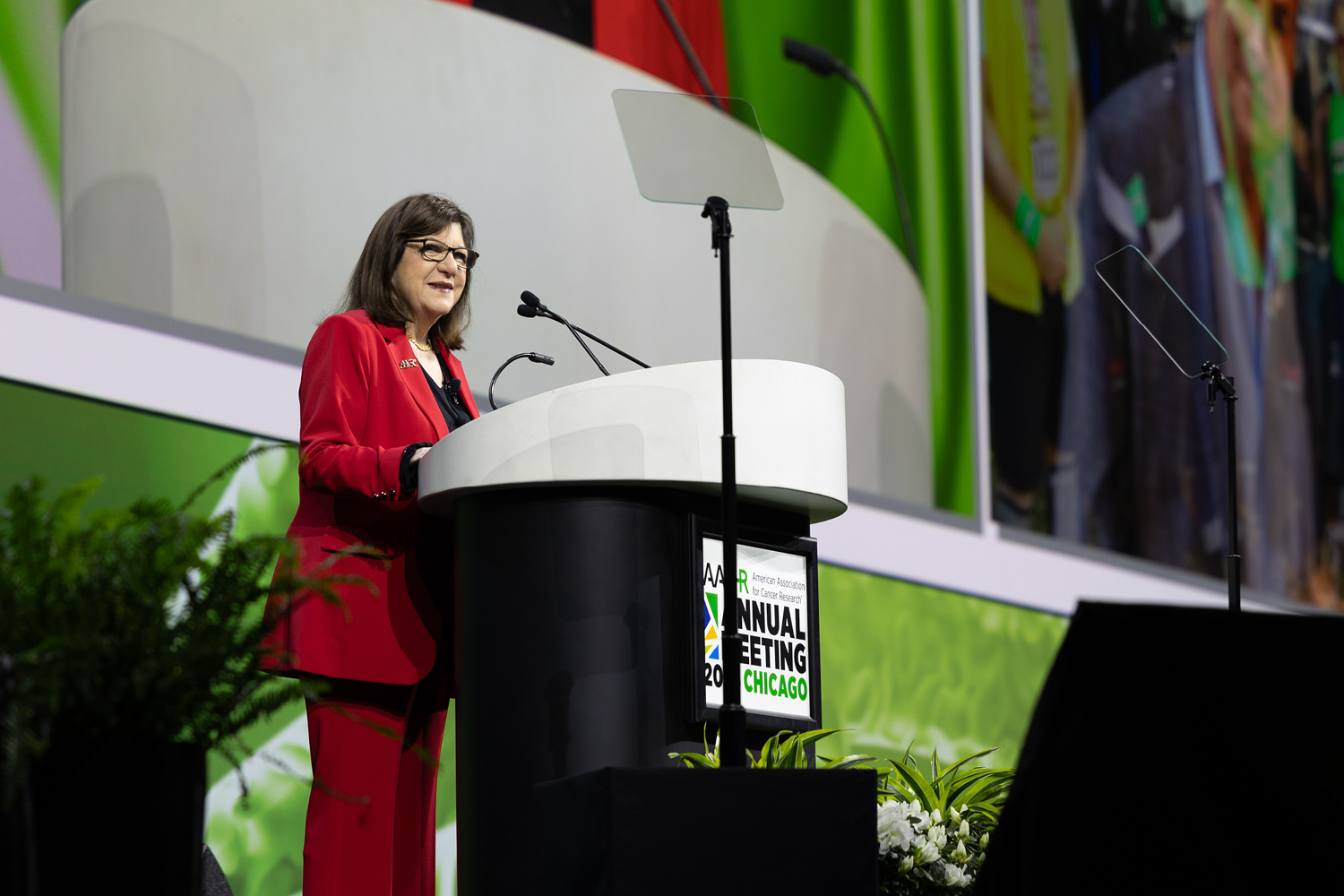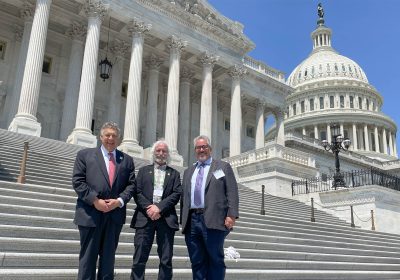
Cancer Research Saves Lives®
Although I have been CEO of the American Association for Cancer Research® (AACR) for many years, one experience that still thrills me is standing on the stage during the Opening Ceremony of the AACR Annual Meeting and seeing before me thousands of scientists and clinicians who have dedicated their lives to the fight against cancer.
It is especially inspiring to see early-career investigators, who account for more than half of the AACR’s membership and represent the next generation of leaders. These brilliant young minds are the future of cancer research, and I am grateful that so many of them have chosen to be part of the AACR.
This year, at the end of our Opening Ceremony, more than 10,000 cancer researchers at all career levels joined in a moment of unity by proudly holding up placards with the simple but impactful message, “Cancer Research Saves Lives,” to show where they stand on the need for more federal support for medical research and to oppose policies that could permanently damage research efforts going forward.
In February, the AACR released a statement and a call to action regarding the administration’s actions that will adversely affect the important work of the National Institutes of Health (NIH), an agency widely recognized as the “crown jewel” of the federal government for its efforts to accelerate progress for people with cancer and hundreds of other diseases. The AACR urged Congress to restore stability to the NIH and its work on behalf of the American people by calling on the administration to abandon proposals that would irreparably damage the NIH. The AACR also asked Congress to reaffirm its long and much appreciated history of steadfast, bipartisan support for medical research.
In May, the AACR opposed the administration’s fiscal year 2026 budget proposal that would cut NIH funding by $17.97 billion, a nearly 40% reduction. Such a drastic step would destabilize medical research in the U.S. by halting critical basic, translational, and clinical research, disrupting the careers of cancer researchers, and jeopardizing patient access to new treatments.
What exactly is at stake? In 2024 alone, the NIH’s two largest national clinical trial programs enabled more than 14,000 patients at hundreds of locations across the country to enroll in cutting-edge clinical trials. These and other cancer clinical trials drive scientific advancements and provide patients, including those with limited treatment options, access to new lifesaving therapies.
Thanks to the research funded by the National Cancer Institute (NCI) and carried out at 72 NCI-designated cancer centers and other cancer centers across the nation, there are now more than 18 million cancer survivors in the U.S. The cancer death rate has fallen 34% in the past 30 years as hundreds of new therapies and prevention strategies have been discovered and validated because of NIH funding. The death rate from breast cancer has dropped 42% since 1989, and survival for children with cancer is now 85%, up from 58% in the mid-1970s.
Further, the national economic impact of continued disruptions to the NIH’s important work would be catastrophic. According to a report from United for Medical Research (UMR), every dollar of research funding from the NIH generates $2.46 of economic activity. The UMR report also revealed that $37.81 billion awarded to U.S. researchers in fiscal year 2023 supported 412,041 jobs around the country.
Sustained support for the NIH is vital to maintaining U.S. leadership in biomedical innovation. For decades, NIH-funded
research has positioned the U.S. at the forefront of scientific discovery. Recent cutbacks risk ceding that leadership position to other nations that continue to expand their investments in medical research and are attempting to attract leading researchers from the U.S. to join them in their respective countries.
As part of the AACR’s expanded efforts to address the funding challenges facing today’s cancer researchers, and especially the next generation of cancer researchers, we are stepping up to launch the largest single grant program in our long history of funding research. The AACR Trailblazer Cancer Research Grants will award $15 million—nine grants of $1 million each to early-stage investigators and six grants of $1 million each to mid-career investigators, supporting them at a critical juncture in their careers and empowering them to drive breakthroughs and save more lives from cancer. By funding innovative and paradigm-shifting research, these grants will advance our understanding of cancer biology, drive groundbreaking translational discoveries, and improve patient outcomes. Of course, although we are very proud to offer these exciting research grants to worthy scientists, this is grossly insufficient to address the major cut in NIH funding that is being proposed by the administration.
At this crucial time, it is vital that your voice is heard in support of the NIH’s lifesaving medical research. The health and well-being of millions of Americans are at stake. To express your concerns about the administration’s actions, please contact your members of Congress today.

Margaret Foti, PhD, MD (hc)
AACR Chief Executive Officer





